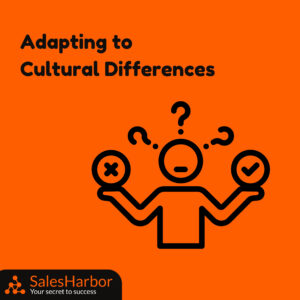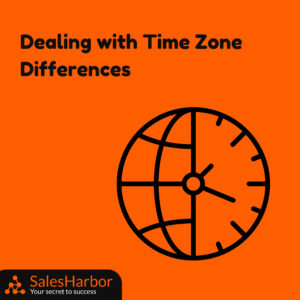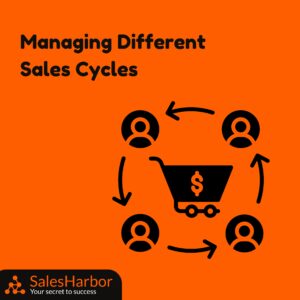Expanding into overseas markets provides huge development prospects but presents complexities that can be difficult for even the most experienced sales teams. Global lead generation necessitates a comprehensive approach that considers local markets, cultural differences, and logistical constraints. In this post, we will look at the major problems of foreign lead generation and how to overcome them efficiently.
Expanding into overseas markets provides huge development prospects but presents complexities that can be difficult for even the most experienced sales teams. Businesses have a variety of problems when expanding into new geographic locations, which can make lead generation a particularly complex process.
1. Comprehending the Dynamics of Local Companies
Each country has its own set of market dynamics that influence consumer behavior and decision-making. What works in one market may not be applicable in another. For example, purchasing power, competitive landscape, and customer expectations might all differ dramatically among areas.
Strategy: Conduct Thorough Market Research
Before commencing any lead-generating effort, spend time learning about the local market. This entails investigating rival activity, discovering consumer pain areas, and comprehending local purchasing trends. Use market research tools and local specialists to collect data that will help you develop a lead-generation strategy. Customizing your strategy for each market boosts your chances of interacting with potential clients.

2. Adapting to Cultural Differences
Cultural variations can have a big impact on how your lead-generation activities are seen. Personal relationships and trust are important in some cultures, yet transactional decisions are more common in others. Understanding cultural differences is essential for efficient communication and connection building.
Strategy: Personalize Your Approach
Language translation is just one aspect of localization. It entails tailoring your messaging, sales strategies, and even communication styles to appeal to the local demographic. In Japan, for example, a more formal and courteous tone is preferred, yet a more direct approach may be effective in the United States. Tailor your lead-generating activities to each market’s cultural standards. This could entail changing the tone of your emails, the manner of your presentations, or even the structure of your sales pitches.

3. Dealing With Time Zone Differences
Different time zones might make it difficult to coordinate communication and follow-up with overseas leads. Missing the ideal time to contact a prospect can result in missed opportunities.
Strategy: Use Time Zone Management Tools
Utilize solutions to manage and automate communication across time zones. Scheduling tools, for example, may ensure that your emails and phone calls reach prospects within normal business hours, improving the likelihood of engagement. Consider establishing local teams or partners who can operate in the same time zones as your target markets to ensure quick replies and follow-ups.

4. Managing Different Sales Cycles
Sales cycles can vary greatly between markets, with some regions having significantly longer or shorter sales periods than others. Understanding these distinctions is critical to setting realistic goals and effectively managing your lead-generating activities.
Strategy: Match Sales Strategies to Local Cycles
Tailor your sales strategies to each market’s sales cycle. In markets with longer cycles, concentrate on nurturing leads over time with consistent follow-ups and value-driven content. In markets with shorter cycles, focus on swift, decisive decisions and clear calls to action. You can enhance conversion rates and optimize your strategy by knowing how quickly your leads make decisions.

5. Using Technology for Global Reach
Effective international lead generation frequently necessitates the use of sophisticated technology to coordinate and track activities in many areas. CRM systems, marketing automation technologies, and data analytics platforms are critical to ensuring consistency and efficiency.
Strategy: Implement Integrated Technology Solutions
Invest in integrated technological solutions that allow you to seamlessly coordinate your lead-generating activities across geographies. A powerful CRM system, for example, may assist you in tracking lead engagements, managing follow-ups, and analyzing campaign effectiveness on a worldwide basis. Marketing automation solutions can also help to automate monotonous operations, freeing up your team’s time for higher-value initiatives.

6. Utilizing Local Partnerships and Influencers
Forming strategic alliances with local businesses or influencers can greatly improve your lead-generation efforts in overseas markets. When introducing your brand to new prospects, these local entities can be quite helpful as they already have a strong awareness of the surrounding market and have built trust.
Strategy: Establish Local Alliances
Identify and work with local partners, such as industry groups, business networks, or influencers that share your target audience’s values. These collaborations can help you broaden your reach through combined marketing activities, co-hosted events, or endorsements. A local influencer, for example, can present your product to their followers, delivering a reliable recommendation that can lead to sales.

Conclusion
To summarize, while foreign lead generation is difficult, it offers huge prospects for growth and expansion. Businesses may develop more effective and specialized lead generation strategies by knowing and resolving each region’s unique market dynamics, cultural variations, and logistical challenges. Investing in localized research, multilingual capabilities, and technology solutions can improve your capacity to engage with and convert leads from a variety of markets.
Establishing a local presence and adjusting to changing sales cycles improves your chances of developing long-term connections with foreign prospects. With a strategic approach and an openness to learning and adaptation, firms may transform these problems into great opportunities for global success, driving growth and reaching new heights on the global stage.
If you’re looking for experts who understand this industry and its challenges, reach out to us for a quick intro call and get to know more about how SalesHarbor can assist you. We can integrate your desired strategies into your business’s framework seamlessly.
Read another article on this topic by Service Provider.



